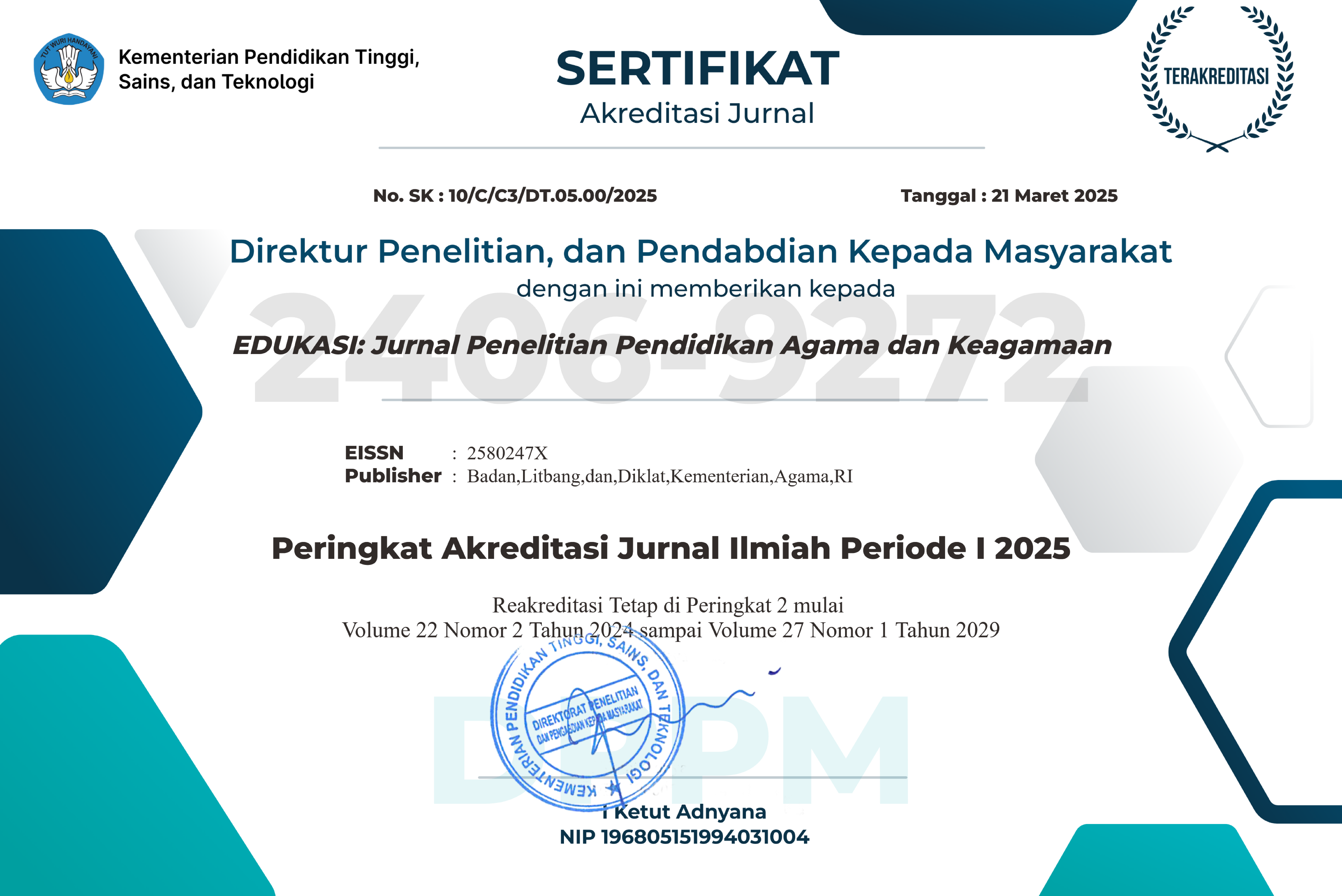Menerima Modernitas, Mempertahankan Tradisi
Studi Layanan Pendidikan di Masyarakat Adat Kampung Urug, Kabupaten Bogor
DOI:
https://doi.org/10.32729/edukasi.v21i3.1639Abstract
Indigenous communities have become an important part of Indonesia’s national development program. The 1945 Constitution of the Republic of Indonesia recognizes and respects the unity of customary law communities and their traditional rights. Indigenous communities, like other communities, have access to educational services provided by both public and private educational institutions, including those that specialize in religious education. Does general education and religious education influence indigenous peoples’ cultural identities? Do the values received from public education institutions affect changes in indigenous peoples' traditional values? Based on an ethnographic study in the traditional community of Kampung Urug in Bogor, we investigated how the community accepts modern and religious educational institutions while retaining their cultural identity and traditional values. We found that the indigenous people of Kampung Urug recognize three distinct authorities that govern their lives: customary authority, religious authority, and government authority. Representatives from the three authorities are always present at traditional activities organized by Kampung Urug’s indigenous community, indicating an attempt to maintain a balance between the three authorities. Because of this division of authority, the Kampung Urug’s community is able to accept modern values without undermining traditional values passed down from generation to generation.
Downloads
Downloads
Published
Issue
Section
License
Copyright (c) 2023 Mulyana Mulyana, Mr. Alam, Nur Alia

This work is licensed under a Creative Commons Attribution-ShareAlike 4.0 International License.









